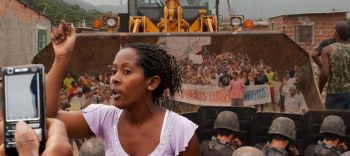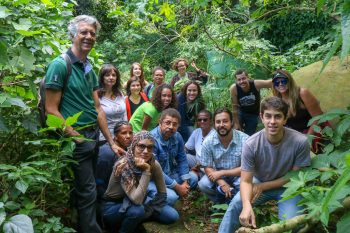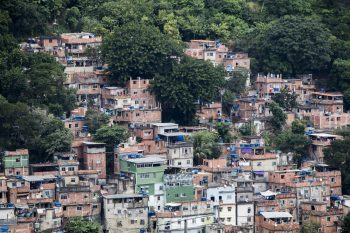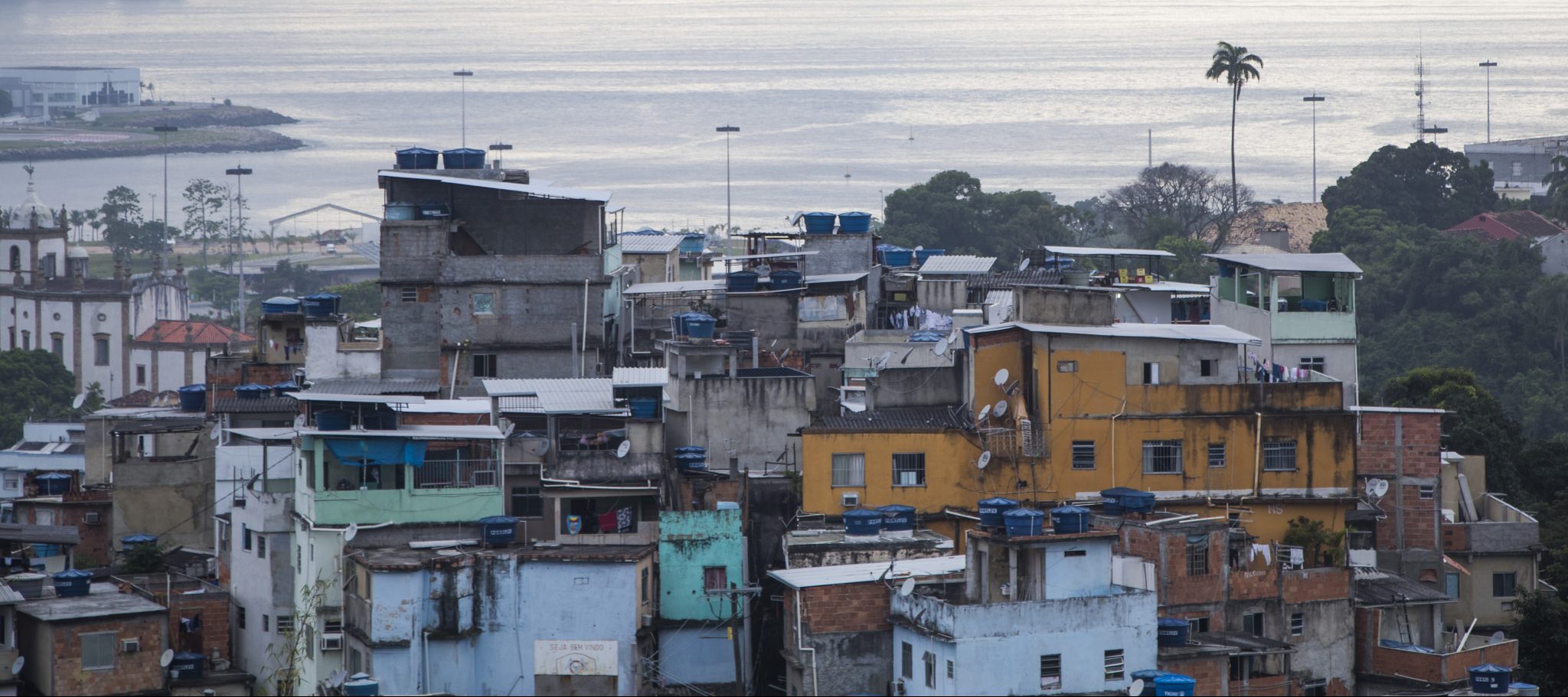#StandWithFavelas—Support Us At This Critical Time
We at Catalytic Communities (CatComm) are gravely concerned for the safety of the thousands of favela-based community organizers we have been supporting for nineteen years and their neighbors. Their lives and communities, and those of indigenous and quilombola leaders across Brazil are now at direct risk from the new administrations—both at the federal and state levels—that show extreme disrespect for human rights, women’s rights, LGBTQ rights, policies of inclusion, and civil society and democracy broadly speaking.
Rio de Janeiro state’s new governor has consistently affirmed a policy that police should be free to kill with impunity: they killed 434 people in the first three months of the year, the highest number since record-keeping began in 1998, statistics that Governor Witzel said “are not his job to monitor”. He has been actively pursuing the use of snipers in police operations and is in favor of police entering homes without search warrants and of using helicopter fire, to the point where he shared a video of himself inside a helicopter that fired down onto a religious site. He has also proposed the employment of retired policemen in public schools and has promised to fight against human rights defenders. He is effectively applying what Achille Mbembe terms necropolitics, the use of power to determine who lives and who dies. This policy of extrajudicial killings is being vehemently contested internationally and locally.
At the federal level, the government’s’ public safety and civic engagement policies are of particular concern to our work. Since taking office, Brazil’s president has eased gun laws, making it easier to purchase and carry guns, and has supported current Justice Minister Sergio Moro’s legislative proposal that reduces jail sentences for people whose attempted murder is attributed to “excusable fear, surprise or violent emotion”—which many consider a way to ease penalties for state agents who kill during operations. Bolsonaro also published a very troubling provisional measure to supervise and monitor NGOs and international organizations operating in Brazil—which was fortunately taken down by Congress. In addition, he issued a decree extinguishing working groups, committees, and councils that enable the participation of civil society in public policy discussions and possibly government decisions. He has also defended child labor and denied the existence of hunger in Brazil, which is actually on the rise. Finally, he has been attacking the credibility and limiting the work of journalists, as well as removing public information from the Internet.
And there are a series of other troubling nation-wide policies at play. Since January, the federal government has authorized the use of over 150 new pesticides, foregone agribusiness debts, eased the fines imposed on those who commit environmental infractions, made it easier for businesses with high deforestation potential to operate, has initiated a crusade against the internationally-financed Amazon Fund, questioned the official data that shows increased deforestation during his administration and created roadblocks for indigenous and quilombola land demarcation. The president has also proposed massive educational budget cuts and is currently proposing a law to yield the administration of universities to the private sector. Finally, he has put Brazil in the risk of a statistical blackout, by underfunding the internationally respected Brazilian Geography and Statistics Institute, responsible for carrying out the census.
In short, this new scenario poses significant threats to the three key threads necessary to human progress: human rights, democracy and the environment. And Brazil may not have the robust institutions to withstand such threats.
Meanwhile, for nearly two decades we at CatComm have been working towards a long-term vision, building the basis for a full-fledged community-led and community-controlled integration of favelas with the formal city. CatComm was founded on the basis of favela communities’ attributes, built over generations, that already existed but were unrecognized, and so we began a long-term mission of strengthening, recognizing, and building on that potential.
As we observe and react to the new political scenario in Rio de Janeiro, we recognize that all of these years of work may be upended or entirely interrupted. At the very least we are having to shift course. The CatComm team has come up with five courses of action, depending on the unfolding of the situation in Brazil, each of which involves slight or large variations to our previous programming. In all of them, we are committed to ensuring the safety of our collaborators and community organizers, in particular favela-based journalists and communicators, with whom we are currently implementing support systems.
Presently, the political scenario still allows us to continue to invest in each of our major current programs, all of which have been expanding in exciting ways:
 RioOnWatch. Our favela news website focuses on solutions reporting, a growing line within our reporting which is proving even more essential in this age, not only with its over-emphasis on negative news but now almost predicated on fake news. Inspiring stories of how communities solve problems in Rio de Janeiro and around the world, what effective urban and public policy looks like from around the world, and other reporting can help bring desperately needed perspective and solutions to Brazil and around the world right now. We will continue to report on human rights abuses whenever requests are made from impacted communities. Meanwhile, RioOnWatch is now holding monthly meet-ups among community journalists, and between community journalists and international correspondents, to increase safety among community reporters and improved coverage of the situation in Rio internationally. Learn more about RioOnWatch here.
RioOnWatch. Our favela news website focuses on solutions reporting, a growing line within our reporting which is proving even more essential in this age, not only with its over-emphasis on negative news but now almost predicated on fake news. Inspiring stories of how communities solve problems in Rio de Janeiro and around the world, what effective urban and public policy looks like from around the world, and other reporting can help bring desperately needed perspective and solutions to Brazil and around the world right now. We will continue to report on human rights abuses whenever requests are made from impacted communities. Meanwhile, RioOnWatch is now holding monthly meet-ups among community journalists, and between community journalists and international correspondents, to increase safety among community reporters and improved coverage of the situation in Rio internationally. Learn more about RioOnWatch here.
 Sustainable Favela Network. This is a network comprised of over 130 initiatives working to build environmental sustainability and social resilience in favelas across Rio de Janeiro’s Metropolitan Region. Through this program, we have produced an award-winning short film showcasing sustainable qualities of favelas, collected and analyzed data on the projects included in the network, promoted a series of exchanges between initiatives (watch our recent video of them), and organized a network-wide day of capacity-building. In 2019, we are holding regular working group meetings along the themes of water, sanitation, trash, income generation, cultural preservation, clean energy, and more; organizing public community-based knowledge transfer exchanges; and developing a Sustainable Favela Indicator. Learn more about the Sustainable Favela Network here.
Sustainable Favela Network. This is a network comprised of over 130 initiatives working to build environmental sustainability and social resilience in favelas across Rio de Janeiro’s Metropolitan Region. Through this program, we have produced an award-winning short film showcasing sustainable qualities of favelas, collected and analyzed data on the projects included in the network, promoted a series of exchanges between initiatives (watch our recent video of them), and organized a network-wide day of capacity-building. In 2019, we are holding regular working group meetings along the themes of water, sanitation, trash, income generation, cultural preservation, clean energy, and more; organizing public community-based knowledge transfer exchanges; and developing a Sustainable Favela Indicator. Learn more about the Sustainable Favela Network here.
 Favela Community Land Trusts. Our land rights work is increasingly focused on coordinating a Working Group of over 150 members in Rio de Janeiro intent on launching a pilot Favela CLT and supportive legislation. Working Group members include favela organizers, technical allies and diverse government agencies. Through a Favela CLT, land titles are separated between land and property, thus the community owns and manages the land collectively while residents individually own their properties and can sell or inherit them freely. It is a much stronger tenure security instrument than typical individual land titles, that pulverize the community fabric previously built by residents and encourage speculation. Favela CLTs also create an institution that now works collectively for perpetuity to ensure the best possible development of the community for its residents. Learn more about Favela CLTs here.
Favela Community Land Trusts. Our land rights work is increasingly focused on coordinating a Working Group of over 150 members in Rio de Janeiro intent on launching a pilot Favela CLT and supportive legislation. Working Group members include favela organizers, technical allies and diverse government agencies. Through a Favela CLT, land titles are separated between land and property, thus the community owns and manages the land collectively while residents individually own their properties and can sell or inherit them freely. It is a much stronger tenure security instrument than typical individual land titles, that pulverize the community fabric previously built by residents and encourage speculation. Favela CLTs also create an institution that now works collectively for perpetuity to ensure the best possible development of the community for its residents. Learn more about Favela CLTs here.
Now, in order to weather such a difficult political moment and continue with this critical work, we need your committed support.
With so much uncertainty in the context surrounding our actions, and in order to respond flexibly, in creative and effective ways to those threats, we need you to express your ongoing support. We need a dependable network of supporters that guarantee we have the financial means necessary to maintain and grow our flexible and responsive programming and protect favela organizers as we continue building a sustainable and inclusive urban future in Rio de Janeiro and around the world.
We simply will not be able to respond effectively if, in addition to the political uncertainty we are working in, our financial stability is uncertain too.
As soon as we reach our initial goal of $5,000 in monthly donations, we will hold our traditional Rio Raffle amongst our recurring donors. Every $10 you’ve donated towards this campaign when the Raffle is launched grants you a chance to win a trip for two to Rio!
See how close we are to reaching our goal here.
Monthly donations are the most helpful, as they bring the dependable, sustained support we will need going forward, but any recurring support (quarterly, annually) is fantastic, as it also allows us to plan ahead. One-time donations are also welcome. Please give what you can, however you can.
Who we are
Catalytic Communities (CatComm) is a 19-year-old community planning and advocacy nonprofit with 501(c)(3) status in the USA, working on-the-ground across hundreds of Rio’s favelas with local leaders and organizers.

